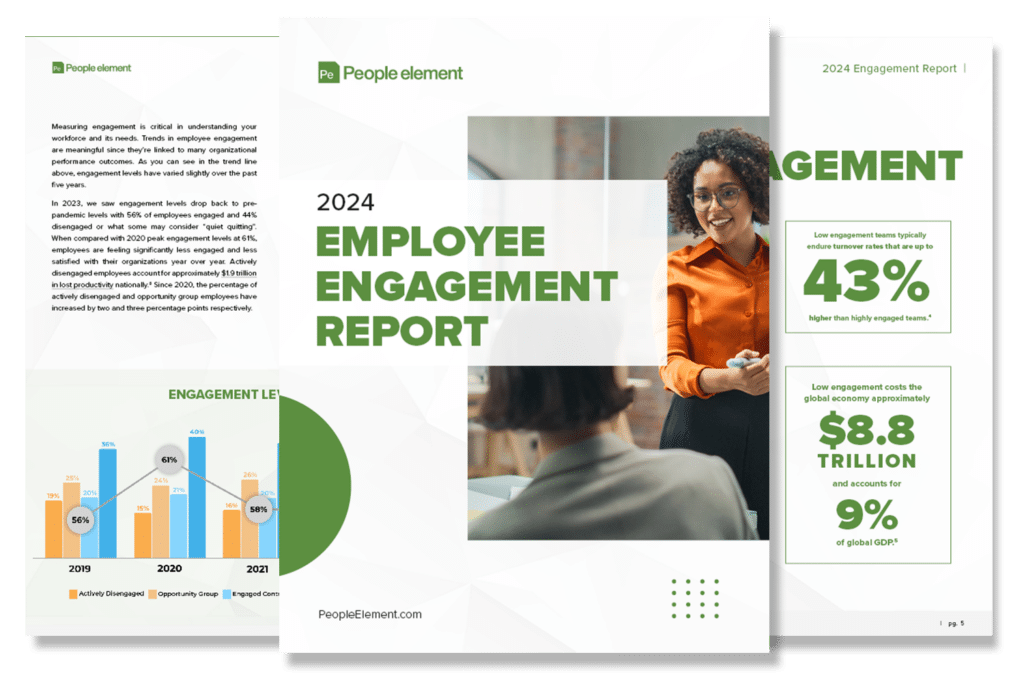By Chris Coberly, People Element CEO
I feel safe saying that mental health affects most of our lives in one way or another. If we’re not dealing with mental challenges ourselves, we all undoubtedly have friends, family members, or co-workers who are. I personally have dealt with anxiety that has at times led to feelings of fear, failure, hopelessness, or even depression. Thankfully, with the help of a strong support system, I’ve been able to find and implement strategies that have helped me better manage those feelings and avoid the lowest lows.
Mental health and suicide are not things we talk about openly much. My experience growing up was that people who struggled with these things were seen as weak and abnormal. Younger generations who, for whatever reason, are more comfortable identifying and talking about these issues are helping to remove the stigma and increase awareness.
As society finds its footing on talking more openly about mental health concerns, the workplace becomes an obvious opportunity for improvement. This topic fits squarely into the employee well-being efforts that are being undertaken by many organizations. That said, we’ve yet to see this topic tackled fully because the path seems filled with dangerous potholes like increased claims, liabilities, or simply a lack of time or resources to handle what might come up. I recently sat down with Dr. Sally Spencer-Thomas, president of the United Suicide Survivors International, to talk about the challenges facing executives in this area and the intersection between mental health and HR. You can see our full candid conversation, here.
Dr. Spencer-Thomas’s organization along with American Foundation for Suicide Prevention and several practitioners in the legal, mental health, and human resources space, recently published a white paper titled “Mental Health Promotion and Suicide Prevention in the Workplace – Policy and Response Recommendations to Help Employers Positively Impact Workers and the Work Environment”. The goal of their report is to provide employers with information and explore the complexities of supporting employees living with mental health conditions and suicidal thoughts.
I’m glad we’re talking about this more openly. I’m glad there are people like Dr. Spencer-Thomas willing to commit their time to help us be better so we can help others. I’m especially glad there are organizational leaders out there who are willing to take this on and make it a more central part of their employee care strategies. This type of effort makes me proud to work in the people business.
About American Foundation for Suicide Prevention (501(c)(3))
The American Foundation for Suicide Prevention is dedicated to saving lives and bringing hope to those affected by suicide, including those who have experienced a loss. AFSP creates a culture that’s smart about mental health through public education and community programs, develops suicide prevention through research and advocacy, and provides support for those affected by suicide. Led by CEO Robert Gebbia and headquartered in New York, with an Advocacy office in Washington, DC, AFSP has local chapters in all 50 states including Puerto Rico, with programs and events nationwide. Learn more about AFSP in its latest Annual Report, and join the conversation on suicide prevention by following AFSP on Facebook, Twitter, Instagram, and YouTube.
About United Suicide Survivors International, Inc. (501(c)(3))
United Suicide Survivors International (US), founded in 2016, is an independent international membership organization that serves as a home for people who have experienced suicide loss, suicide attempts, and suicidal thoughts and feelings, as well as their friends and families—collectively known as people with lived experience with suicide—where they can leverage their expertise for large-scale change. We envision a world where lived expertise becomes the fulcrum that leverages all suicide prevention efforts. We put the lived expertise of suicide attempt and loss survivors into action through leadership, collaboration, and advocacy. www.UniteSurvivors.org. Follow US on Facebook, Twitter, Instagram, and YouTube.





